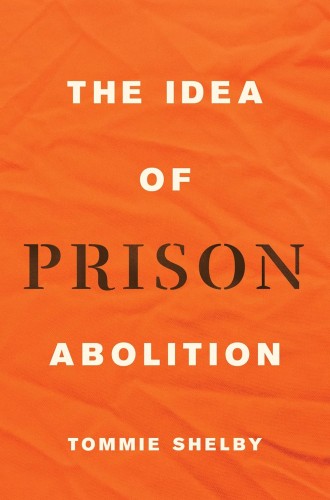Can incarceration ever be just?
Philosopher Tommie Shelby pushes me to question my abolitionist convictions.

The Idea of Prison Abolition
In The Idea of Prison Abolition, Harvard philosopher Tommie Shelby asks whether incarceration can ever be just, either in an unjust world such as ours or in a fully just society. He shows his cards early, writing on page 4 that after using all the philosophical tools in his toolbox, he favors prison reform over abolition, believing that there is a way in which prisons can be just. I do not come to the same conclusion, even after reading Shelby’s book twice. But I find his arguments thought-provoking, particularly for the questions they inspire about the nature of the debate between prison reform and prison abolition.
Shelby begins by introducing the debate between reform and abolition, noting that he will approach the question philosophically and in dialogue with other thinkers, especially prison abolitionist Angela Davis. Shelby’s engagement with Davis, which runs throughout the book, is thoughtful and respectful. He states early on that while Davis is often treated as a hero who shouldn’t be argued with, he finds her deserving of “the same kind of critical but respectful engagement that distinguished male or white philosophers regularly receive.” He spends significant time coming to terms with Davis’s idea of incarceration as political. He also explores how incarceration is connected to slave narratives and to Black radical thought, providing helpful background information.
Read our latest issue or browse back issues.
Shelby lays out clear definitions of incarceration and prison. Incarceration, he writes, is a “hierarchical institutional practice defined by a set of rules, roles, and goals” that involves involuntary confinement in an enclosed space isolated from the rest of society and being placed in the “custody of carceral authorities.” By this definition, quarantining people with infectious diseases and holding enemy combatants in times of war are forms of incarceration—and, Shelby argues, they exemplify how incarceration can be legitimate. Prison, he explains, is a form of incarceration used for the purpose of punishment, which is “unwelcome and unpleasant treatment.”
Like Davis, Shelby argues that punishment should not be retributive. Unlike Davis, however, he argues that punishment is legitimate when used as a way to prevent or control crime. He takes pains to lay out many qualifications: that prisons need massive and radical reform, that they should be used only when all other preventative and rehabilitative measures have failed, that they must be disentangled from systems of oppression like racism and classism, that they should only be used for the safety of vulnerable populations when a dangerous individual needs to be incapacitated, and that the exilic nature of incarceration is so punishing that no retribution or dehumanization should be added to it. Still, his argument hinges on the assumption that it’s possible for prisons to be used as tools to prevent and control crime.
But what if prisons are not effective tools to prevent and control crime? In her 2021 book, “Prisons Make Us Safer”: And 20 Other Myths about Mass Incarceration, Victoria Law argues that incarceration isn’t preventative since it happens after the harm has been done. Nor does it always work as a deterrent: Law cites a survey conducted by the restorative justice organization Common Justice in which one-third of the incarcerated people surveyed did not think of a penalty when committing their crimes, one-third thought the penalty wouldn’t be severe, and one-third were indifferent to the threat of incarceration. She cites research showing that incarceration leads to higher rates of recidivism than alternatives like probation. She also provides examples showing that when states reduce their incarceration rates, crime rates also fall.
For Shelby, the legitimacy of prisons relies on their effectiveness in making the world safer. If, as Law argues, prisons don’t make the world safer, what then? Shelby admits that “this fact—that there is room for reasonable doubt about whether prisons prevent crime—may be the strongest argument in favor of abolition.” Still, he finds himself unable to embrace abolition. Instead, he suggests several radical prison reforms, including a moratorium on incarceration and replacing for-profit prisons with nonprofit ones. Shelby also heavily endorses using alternatives to prisons when possible and dismantling the background social conditions (such as poverty and racism) that lead to incarceration.
He forwards Davis’s approach to dealing with violent crime—making mental health care and substance abuse treatment accessible for everyone, strengthening rehabilitative efforts, and using restorative justice processes to achieve reconciliation—but adds that Davis’s approach can be used in tandem with incarceration. Abolitionists like Davis may be unopposed to the incapacitation of people with mental health concerns so severe that they are a danger to others (such as in psychiatric hospitals). But Shelby believes that prisons and other forms of incarceration can be a site of rehabilitation, while Davis does not.
I’m with Davis here. I teach incarcerated students, and sometimes they talk about being in prison as a chance to reset, to get out of harmful environments and turn their lives around. While the opportunity to earn a bachelor’s degree in prison is undeniably an occasion for personal growth and reconciliation, I can’t help imagining how much more they would get out of their education if they weren’t held back by the limits of learning in prison. Are my students shaping up because they are in prison or in spite of it?
One of the most helpful parts of Shelby’s book is his description of transformative justice, the umbrella under which he locates reparative and restorative justice. Transformative justice, which is sometimes also called community accountability, centers the needs of victims and survivors while rejecting punishment, police, and the notion of criminal justice. Its goal is to prevent future harm by ameliorating the material circumstances and power dynamics that led up to the crime, both at the community level and on a broader scale. Shelby includes several common criticisms of restorative justice, including the difficulty of asking a population to forgive or extend mercy to a person who murdered one of their own. While the “laudable disposition to forgive might be acceptable for a religious group or an otherwise highly cohesive community,” he writes, “in a large, complex, and pluralist society of people who are largely strangers to one another, it strikes me as too much to ask if effective deterrents, incapacitation, and rehabilitation are available to help control such serious crime.”
Although I am still an abolitionist after reading Shelby’s book, I’m grateful for the ways it pushes me to question my convictions. I assume that Shelby has much in common, in terms of practical goals, with prison abolitionists, since the reforms he suggests are so radical that they effectively call for an abolition of prison as we know it.





